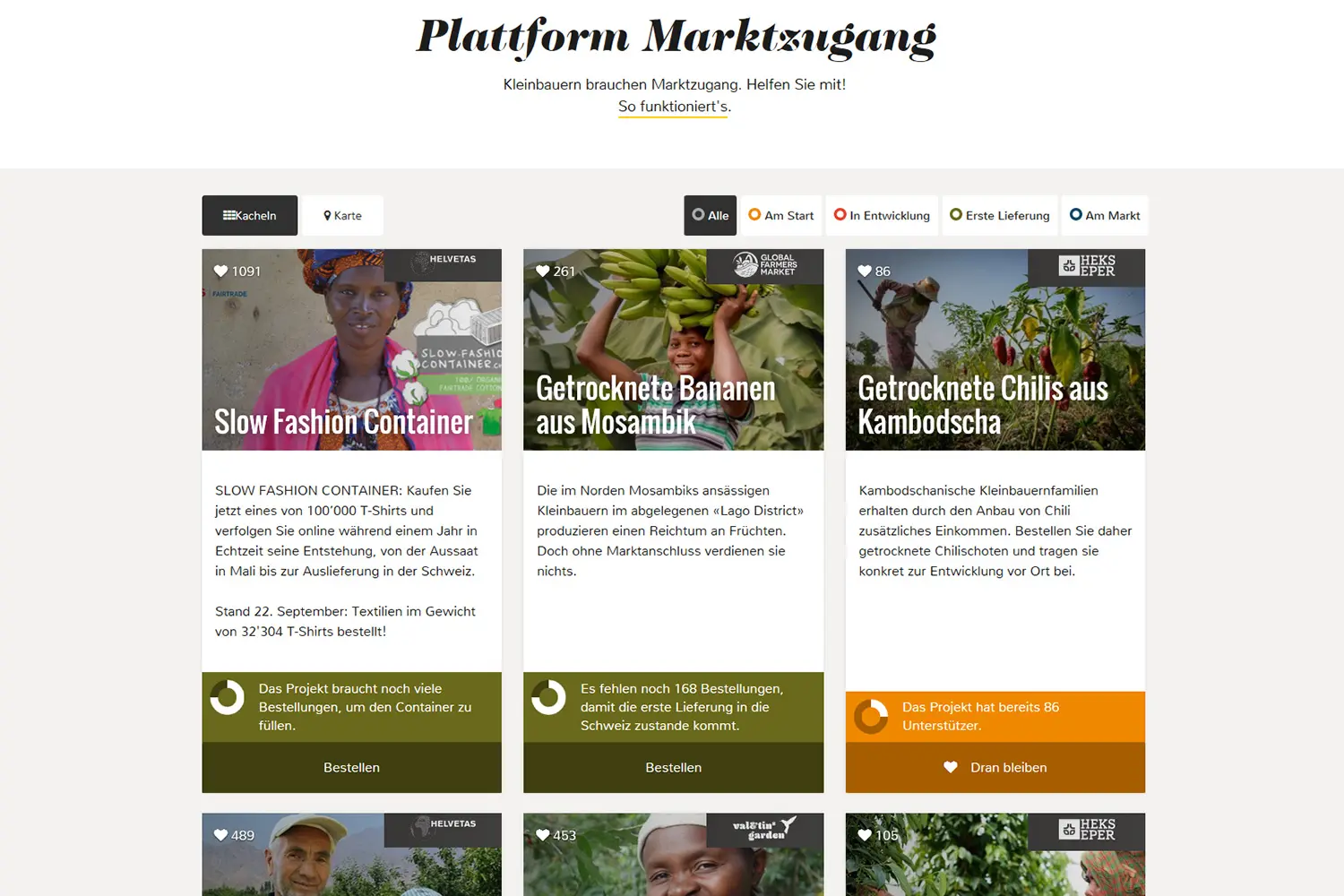Access-to-market platform
Platform provides small holders with market access
Despite its impeccable quality, the produce from small-scale agriculture in developing countries rarely finds its way to Europe. Small-scale producers have no access to world markets. Working with the ZHAW School of Engineering, the trading company gebana has developed a platform which aims to provide better market access to small holders from all over the world.
It is particularly difficult to establish sustainable value chains in developing countries. Modern supply networks are highly complex and involve an intricate division of labour. In addition to specific know how, they also require reliable partners at every stage. A lack of infrastructure and, in some instances, local political conditions are further obstacles to getting goods to market. For these reasons, and because consumers in Western countries are very demanding, farming families and local processing plants need support. gebana’s new Access-to-Market Platform, which the company developed in collaboration with the ZHAW School of Engineering’s Institute of Applied Information Technology as part of the CTI-funded PESCO project, aims to provide that support. The purpose of the platform is to help farmers and processing companies in producing countries to gain access to the market and to start supplying products to Switzerland.
Platform links North and South
The platform brings three different parties together, as the project manager, InIT Professor Hans-Peter Hutter, explains, “There are the producers, who farm the produce and would like to offer it for sale. Then there is gebana, the intermediary, which provides them with access to the European market. And finally there are the customers, who use the platform to buy products direct from the farmers.” Rather than having products routed long distances between multiple intermediaries, this platform delivers more or less directly from the farm to the customer. A website provides potential customers with an overview of the various types of product available. A customer interested in a particular offer can register their interest online. If there is sufficient customer interest, the project can get under way. The minimum required demand varies according to the nature of the produce and the applicable minimum import volume.

App makes communication and organisation easier
“Whereas here in Europe we use the platform as a website, for the producing countries in the Global South we have developed a dedicated app for communicating with suppliers,” says Hans-Peter Hutter. Numerous enquiries have to be made before an offer can be posted on the platform. What does the farmer grow? Do his cultivation methods meet organic-farming requirements. What other standards does he meet? “Previously, communications with producers took place by letter and phone and were fairly cumbersome,” explains Hans-Peter Hutter. “Thanks to the app, these preparations and enquiries are much simpler and have also been standardised.” However, since most of the farmers do not speak English and often have no smartphone or use it only for making calls, gebana works with local agents who act as interpreters and operate the app.
“We had to pay particular attention to cross-cultural considerations. The app had to be as simple and streamlined as possible and it had to be easy to use.”
Hans-Peter Hutter, Institute of Applied Information Technology (InIT)
Process designed for cross-cultural communication
The InIT’s work on developing the platform was focused on the service design. “We designed an architecture covering the various steps needed in the process,” says Hans-Peter Hutter. “We had to pay particular attention to cross-cultural considerations. The app had to be as simple and streamlined as possible and it had to be easy to use.” In order to enable consumers in the Global North to support these access-to-market projects at every stage of their execution, the PESCO platform not only allows them to support an initial delivery through crowd ordering, but also enables them to use crowd funding to support a project. Supporters can, for example, donate shipping crates for a project, and receive a product in return. Offering the possibility of supporting projects through donations should also help to strengthen the ties between the two communities involved.
Fair market access without intermediaries
“Small-scale farming families create ecological, social and economic value and there is a market which is ready to pay for that,” explains gebana’s Adrian Wiedmer. “With the support of the ZHAW, we have made it possible to offer disadvantaged small holders in the Global South access to the market in the Global North.” In so doing, gebana is closing an important gap. While many different NGOs and private organisations have been helping farmers in the Global South to improve their cultivation techniques and to adopt organic farming methods, most have few if any means of helping them to find markets for their produce. This is where gebana with its many years of trading experience and the crowd ordering supported by the access-to-market platform can help.
At a glance
Participating institutes and centres:
Project partner:
Financing: Innosuisse (former CTI)
Project status: completed